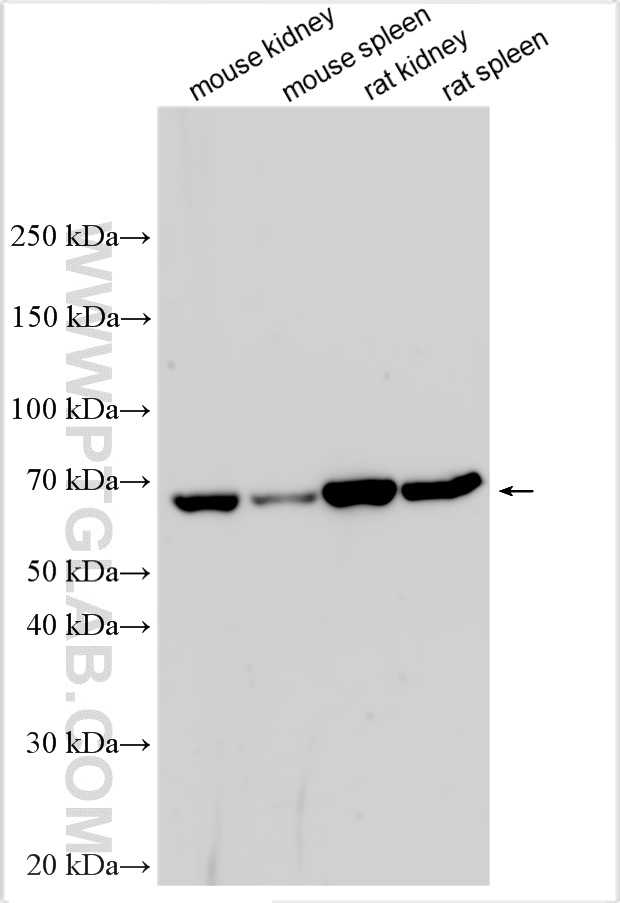验证数据展示
经过测试的应用
| Positive WB detected in | mouse kidney tissue, mouse spleen tissue, rat kidney tissue, rat spleen tissue |
推荐稀释比
| 应用 | 推荐稀释比 |
|---|---|
| Western Blot (WB) | WB : 1:500-1:2000 |
| It is recommended that this reagent should be titrated in each testing system to obtain optimal results. | |
| Sample-dependent, Check data in validation data gallery. | |
产品信息
28200-1-AP targets IRAK2 in WB, ELISA applications and shows reactivity with human, mouse, rat samples.
| 经测试应用 | WB, ELISA Application Description |
| 经测试反应性 | human, mouse, rat |
| 免疫原 | IRAK2 fusion protein Ag28179 种属同源性预测 |
| 宿主/亚型 | Rabbit / IgG |
| 抗体类别 | Polyclonal |
| 产品类型 | Antibody |
| 全称 | interleukin-1 receptor-associated kinase 2 |
| 别名 | Interleukin-1 receptor-associated kinase-like 2, IRAK 2, IRAK-2 |
| 计算分子量 | 625 aa, 69 kDa |
| 观测分子量 | 69 kDa |
| GenBank蛋白编号 | BC125184 |
| 基因名称 | IRAK2 |
| Gene ID (NCBI) | 3656 |
| 偶联类型 | Unconjugated |
| 形式 | Liquid |
| 纯化方式 | Antigen affinity purification |
| UNIPROT ID | O43187 |
| 储存缓冲液 | PBS with 0.02% sodium azide and 50% glycerol, pH 7.3. |
| 储存条件 | Store at -20°C. Stable for one year after shipment. Aliquoting is unnecessary for -20oC storage. |
背景介绍
IRAK2 (Interleukin-1 receptor-associated kinase 2) is a crucial protein involved in innate immune signaling and has diverse roles in various biological processes. IRAK2 belongs to the IRAK family of proteins, which share an N-terminal death domain (DD) that enables interactions with the DD-containing MyD88, and a central kinase domain (KD) (PMID: 24973222). IRAK2 has been implicated in various cancers. It is highly expressed in pancreatic cancer patients and is associated with poor prognosis. IRAK2 knockdown impairs pancreatic cancer cell proliferation (PMID: 37108068).
实验方案
| Product Specific Protocols | |
|---|---|
| WB protocol for IRAK2 antibody 28200-1-AP | Download protocol |
| Standard Protocols | |
|---|---|
| Click here to view our Standard Protocols |
